Do you have the privilege of owning a magnificent Maine Coon cat? These fluffy felines are not your average house cats – they are true giants of the cat world, known for their exceptional size and grace. As a Maine Coon owner, you want to ensure that your furry friend is healthy, happy and growing to their fullest potential. And one way to do that is through their diet.
But what should you be feeding your Maine Coon to promote growth? It’s a common question among pet owners, and with so many options available on the market, it can be overwhelming to choose the right food for your little big guy. From protein-rich diets to specialty formulas geared specifically towards Maine Coons, there’s no shortage of choices.
In this blog post, we’ll explore the various foods that can help your Maine Coon grow big and healthy. But before we dive in, let’s start with the basics – what makes a Maine Coon different from other cats? Why is their diet so crucial for their growth and development?
So get ready to learn everything you need to know about feeding your majestic Maine Coon because nothing is too good for our furry friends.
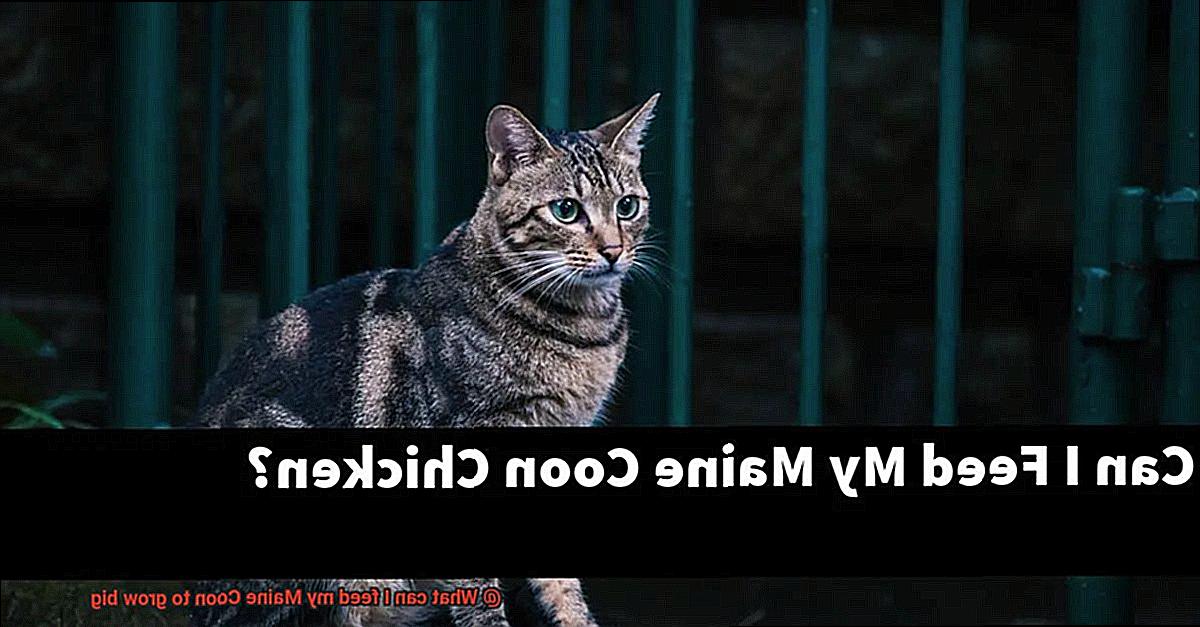
What Makes Maine Coon Cats Unique?
Maine Coon cats are a fascinating breed with many unique qualities that make them stand out from other cats. If you’re lucky enough to be a Maine Coon cat owner, you already know how special these magnificent felines truly are. But what exactly makes them so unique?
First and foremost, the size of Maine Coons is undoubtedly one of their most distinctive features. They are one of the largest domestic cat breeds around, with males weighing in at an impressive 13-18 pounds and females weighing 8-12 pounds on average. Their size alone sets them apart from other cats and makes them a true standout in any household.
However, their size isn’t the only thing that makes them unique. Maine Coon cats have a distinctive appearance that’s all their own. Their long, bushy tails, tufted ears, and shaggy coat give them an unmistakable look that cat lovers around the world adore. Their fur is water-resistant and comes in a variety of colors and patterns, making each Maine Coon cat truly one-of-a-kind.
One theory about the origins of Maine Coon cats is that they are descendants of cats brought over by European settlers to America. Over time, they adapted to the harsh New England climate and developed their thick coats to protect them from the cold.
Aside from their physical traits, Maine Coons also have unique personalities. They’re known for being affectionate and social with their owners, often following them around the house and seeking out attention. They’re intelligent cats who enjoy interactive playtime and can even learn tricks like fetching or walking on a leash.
When it comes to feeding your Maine Coon cat, it’s essential to choose high-quality food that meets their nutritional needs. Protein is key for muscle growth and development, which is especially important for large breeds like Maine Coons. Look for high-quality sources like chicken, turkey, or fish in your cat’s food. Fat is also essential for energy and maintaining a healthy weight, so aim for moderate levels around 10-15%. Finally, make sure your cat’s food contains all the necessary vitamins and minerals or consider adding supplements to their diet.
The Importance of Protein in the Diet
Get ready to learn about the secret behind Maine Coon cats’ impressive size and muscular build – protein. Protein is a vital nutrient for building and repairing muscles, as well as providing energy, making it crucial for the overall health and growth of Maine Coons.
When choosing the right cat food for your furry friend, it is essential to look for a high protein content. The ideal cat food should contain at least 30% protein, with animal-based sources such as chicken or beef being the most beneficial. While plant-based proteins like those found in grains may be okay, they are not as easily digestible for cats and may not provide the same benefits.
Not all proteins are created equal, so it is important to choose high-quality proteins that contain all the essential amino acids necessary for a cat’s well-being. These amino acids cannot be synthesized by the cat’s body and must be obtained through their diet. Look for cat foods that list specific animal-based sources of protein instead of vague terms like “meat by-products” or “animal meal.”
Apart from high-protein cat food, you can also supplement your Maine Coon’s diet with protein-rich treats such as cooked chicken or freeze-dried meat. However, ensure that you monitor their overall caloric intake to avoid overfeeding.
Fat: An Essential Nutrient for Maine Coons
One essential nutrient that should not be overlooked is fat. Yes, you read that right – fat is an important component of a Maine Coon’s diet.
Why is fat so important? For starters, it’s a rich source of energy – providing twice as much energy as carbohydrates or protein. It also aids in the absorption of fat-soluble vitamins, including vitamins A, D, E, and K. But not all fats are created equal. A diet high in unhealthy fats can lead to obesity, which can cause various health problems in Maine Coons.
So what are the best sources of fat for your feline friend? Look no further than animal-based fats such as chicken fat, fish oil, and beef tallow. These fats provide high-quality omega-3 and omega-6 fatty acids that play a vital role in maintaining healthy skin and coat, improving brain function, and reducing inflammation.
It’s essential to note that Maine Coons have a slower metabolism than other cats. This means they require fewer calories per pound of body weight. Overfeeding your Maine Coon with high-fat diets can lead to obesity and other health problems. That’s why it’s crucial to consult with your veterinarian to determine the appropriate amount of fat your Maine Coon should consume based on their age, weight, and activity level.
To ensure your Maine Coon receives a well-balanced diet with the right amount of fat, aim for high-quality animal-based fats in moderation. Avoid vague terms like “meat by-products” or “animal meal” in cat food and aim for at least 10% fat content. You can also supplement their diet with delicious treats like cooked chicken or freeze-dried meat – just be sure to watch their caloric intake.
Vitamins and Minerals for Optimal Health
This means providing them with the necessary vitamins and minerals they need for optimal health. These essential nutrients support your Maine Coon’s growth, development, and overall well-being, so it’s crucial to understand what they are and why they matter.
Firstly, let’s talk about protein. As carnivores, Maine Coons require a high-quality protein source in their diet. Aim for a protein content of at least 30% in your cat’s food, and choose chicken or fish as your primary protein source. Protein supports muscle growth and repair, making it vital for your Maine Coon’s development.
Taurine is another essential nutrient that your Maine Coon needs. This amino acid is critical for heart health and vision, making it a must-have in their diet. Taurine can be found in high amounts in meat-based diets, so make sure your cat’s food contains adequate levels of this nutrient to support their overall health.
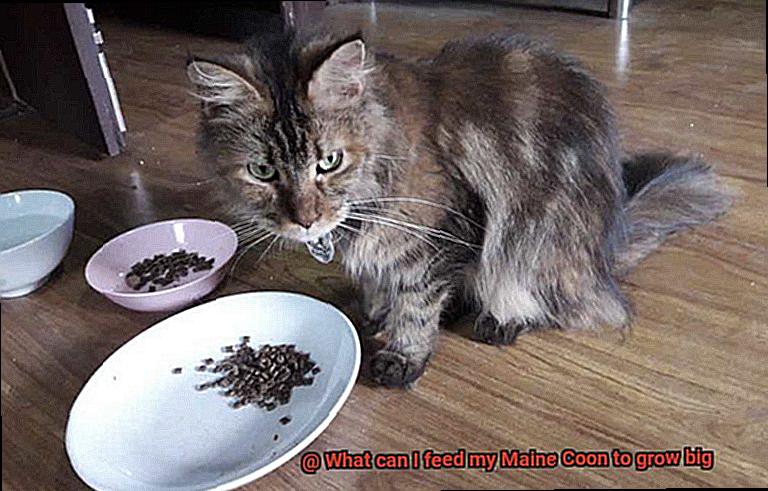
Omega-3 fatty acids are also crucial for Maine Coons. These healthy fats promote a shiny coat and healthy skin, as well as supporting brain and eye development. Look for foods that contain sources of omega-3s, such as fish oil or flaxseed, to ensure your cat receives this important nutrient.
Vitamins A and D are essential for immune system function, vision, bone health, and calcium absorption. Vitamin A can be found in animal liver and egg yolks, while vitamin D can be found in fatty fish, egg yolks, and fortified dairy products. Calcium is also important for strong bones and teeth – dairy products and some fortified cat foods are excellent sources of this mineral.
Finally, iron is another vital mineral that supports carrying oxygen throughout the body. Meat-based sources such as liver are excellent sources of this nutrient.
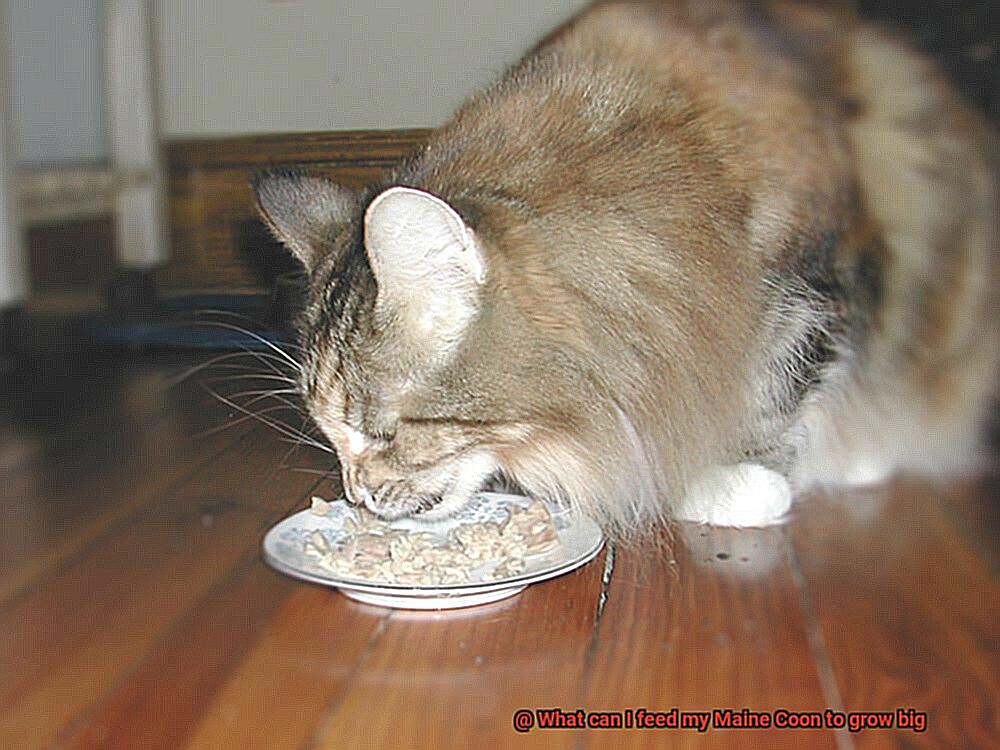
By ensuring your Maine Coon receives a balanced diet that includes these essential nutrients, you can help support their growth and overall health. But remember – every cat is different, so it’s crucial to speak to your veterinarian about your cat’s specific dietary needs and any supplements that may be necessary to support their health.
Omega-3 Fatty Acids and Skin and Coat Health
This is where omega-3 fatty acids come in. These essential fatty acids play a vital role in maintaining the health of your Maine Coon’s skin and coat, ensuring they look and feel their best.
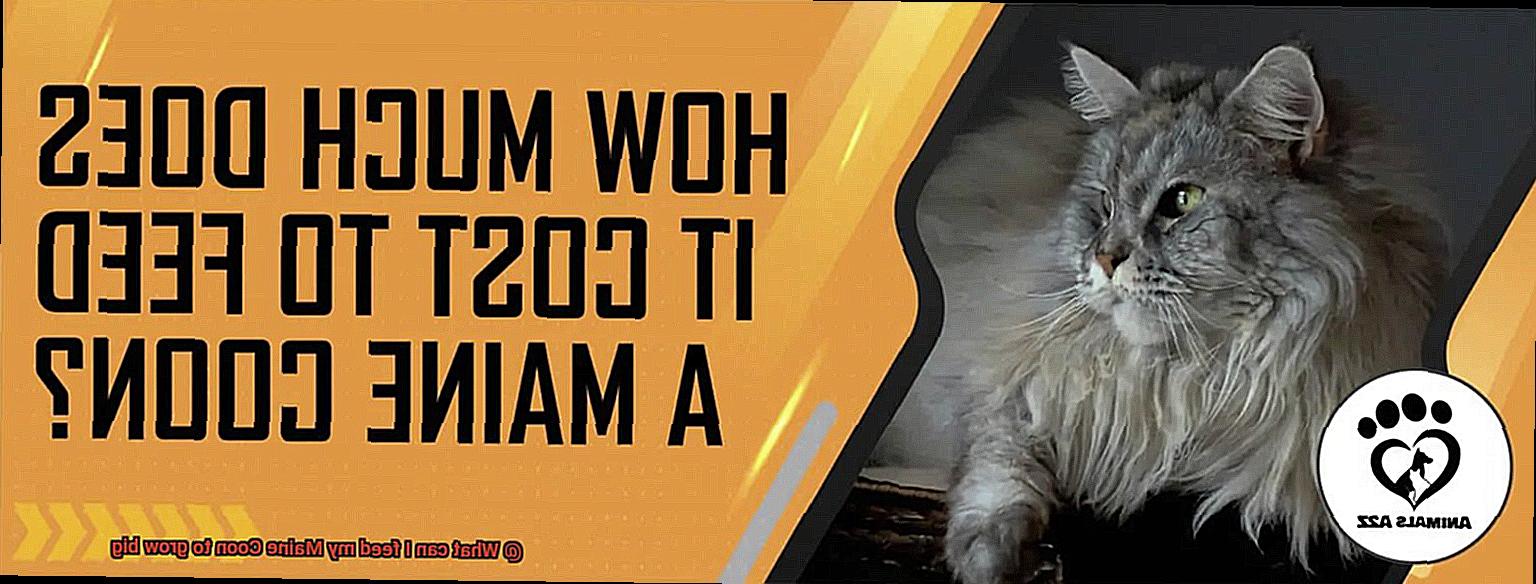
Omega-3s are essential for the production of healthy skin cells, which contribute to a lustrous coat. They also help reduce inflammation and itching, which is particularly important for Maine Coons that are prone to skin allergies. The best way to provide your cat with omega-3s is through fish oil, either as a supplement or by feeding them oily fish like salmon or tuna. However, it’s essential to follow dosage instructions and avoid overfeeding as too much fish oil can cause digestive issues.
Another source of omega-3s is flaxseed oil, although it is not as effective as fish oil in terms of providing the necessary nutrients for skin and coat health. Flaxseed oil can be added to your cat’s food as a supplement, but it has a shorter shelf life than fish oil and can easily become rancid if not stored correctly.
In addition to omega-3s, Maine Coons require other nutrients for healthy skin and coat, such as protein, vitamins A and E, and zinc. High-quality commercial cat foods formulated for skin and coat health should contain these nutrients in the right proportions. Adding fresh foods like cooked chicken or beef liver to your Maine Coon’s diet can also provide these essential nutrients.
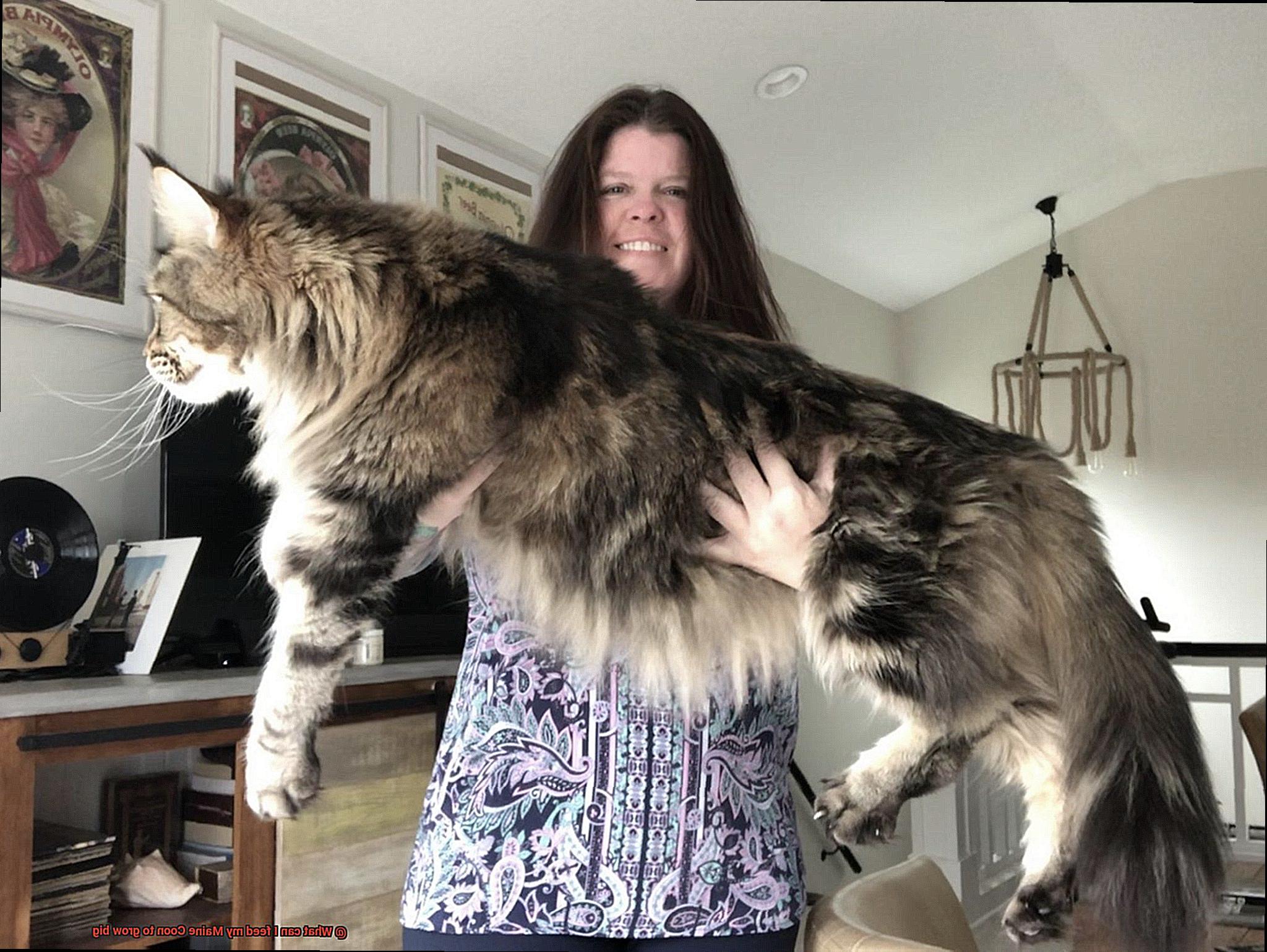
M3dTsY-3JJg” >
Choosing the Right Food for Your Maine Coon
They are a part of your family, and you want to do everything in your power to keep them healthy and happy. One of the most critical factors in ensuring your cat’s well-being is choosing the right food for them.
Maine Coons are known for their massive size, and they require a diet that is high in protein, calories, and nutrients. Therefore, it’s essential to select cat food that is specifically formulated for large breeds or Maine Coons. A high-quality protein source such as chicken, turkey, or fish should be top on your list of ingredients to consider. Avoid cat foods that contain meat by-products or fillers like corn or wheat. Also, Maine Coons need a high-fat diet to maintain their energy levels and support their fur coat, so choose a cat food with moderate to high fat content.
Age and activity level are vital considerations when it comes to your cat’s diet. Kittens and young adults require more calories and nutrients than older or less active cats. It would be best if you made sure to select cat food appropriate for your cat’s age and activity level.
Monitoring your cat’s weight is also crucial in maintaining their health. Maine Coons tend to gain weight quickly, making them prone to obesity. Overfeeding your cat can lead to severe health problems such as diabetes or heart disease. To prevent this, follow the recommended serving size on the cat food packaging while also paying attention to your cat’s hunger cues.
Also Read: How to Schedule Maine Coon Feeding?
Conclusion
In summary, feeding your Maine Coon a nutritious diet is essential for their growth and development. As carnivores, they require high-quality protein sources like chicken, turkey, or fish to build and repair muscles. Don’t forget about the importance of fat for energy and maintaining a healthy weight – aim for moderate levels around 10-15%. And let’s not forget about the specific vitamins and minerals that Maine Coons need, such as taurine, omega-3 fatty acids, calcium, iron, and vitamins A and D.
It’s crucial to choose the right food for your Maine Coon to ensure their well-being. Look for cat foods specifically formulated for large breeds or Maine Coons with high-quality protein sources and moderate to high-fat content. Remember that age and activity level are also vital considerations when selecting cat food appropriate for your furry friend.
In addition to commercial cat food, you can supplement your Maine Coon’s diet with protein-rich treats like cooked chicken or freeze-dried meat. But be sure to monitor their caloric intake to avoid overfeeding – we don’t want any pudgy kitties.
By providing your majestic Maine Coon with a well-balanced diet that meets their nutritional needs, you can help them grow big and healthy while enjoying their affectionate personalities and unique appearance. And if you have any questions or concerns about your cat’s diet or supplements necessary to support their health, don’t hesitate to consult with your veterinarian.







